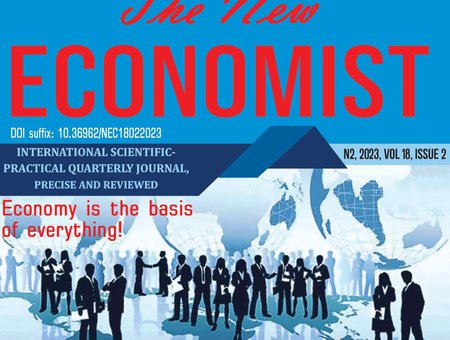Copyright © 2023 the Author/s
Peer review method: Double-Blind
Accepted: June 6, 2022
Published: June 21, 2023
Original scientific article
DOI suffix: 10.36962/NEC18022023-63
The defeat and disintegration of the Ottoman Empire in the First World War led to the discrediting of the main political ideologies that were powerful in the last years of the empire's existence. Ottomanism lost its purpose, neither Pan-Islamism nor Pan-Turkism could preserve the empire. Their struggle to maintain the empire ended in failure. At the same time, the defeat experienced in the war deprived the Ottoman Empire of its main foreign ally in the form of Germany.
The struggle for the country's independence, led by Mustafa Kemal, gained great support among the population. Of course, this was due to the appeal to patriotism - protecting the homeland from invaders was the main goal, and therefore it is not surprising that in 1923, when the Republic of Turkey was established, with the great efforts of Mustafa Kemal, a new concept of nationalism began to take root in the country.
It is a well-known fact that ideologies cannot disappear on the basis of any decree, therefore, the ideas of the "Young Turks" and their era were transferred to the new republic. Therefore, elements of Turkism and Pan-Turkism were transferred to the new ideology. The nationalism conceived by Mustafa Kemal naturally acquired a different orientation, it became the doctrine of the new republic, but within a certain framework, and this framework was the principles characteristic of republican states. These principles were the framework of all the currents that existed in Turkey.
In 1921, during the War of Independence, Mustafa Kemal, speaking in Eskişehir, said: "Neither the Islamic Union nor Turanism can create a doctrine or a logical policy for us, because the official policy of the new Turkey is to live independently, to rely on Turkey's own sovereignty, within its national borders."
Mustafa Kemal hoped that the rejection of pan-Turkic ideals would also help him to normalize relations with the Soviet Union: political pan-Turkism, especially its irredentist element, would be officially suppressed. Despite the fact that several pan-Turkish associations were active outside Turkey in the 1930s, there is no evidence that the Turkish authorities officially supported them. Kemalism was focused on building a democratic state and demonstrated a remarkable ability to assimilate the recent past and uphold republican principles while shaping the new future.
Defenders of the new doctrine in the process of building a new state actively assimilated the fundamental principles of the republican system, built relevant institutions and absorbed various ideological elements, including Pan-Turkism.




